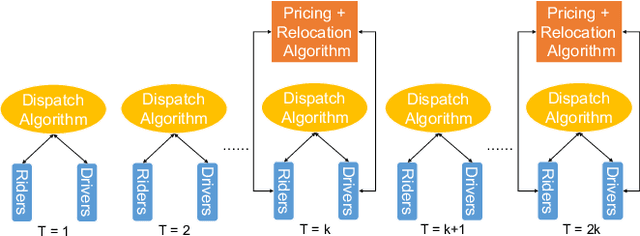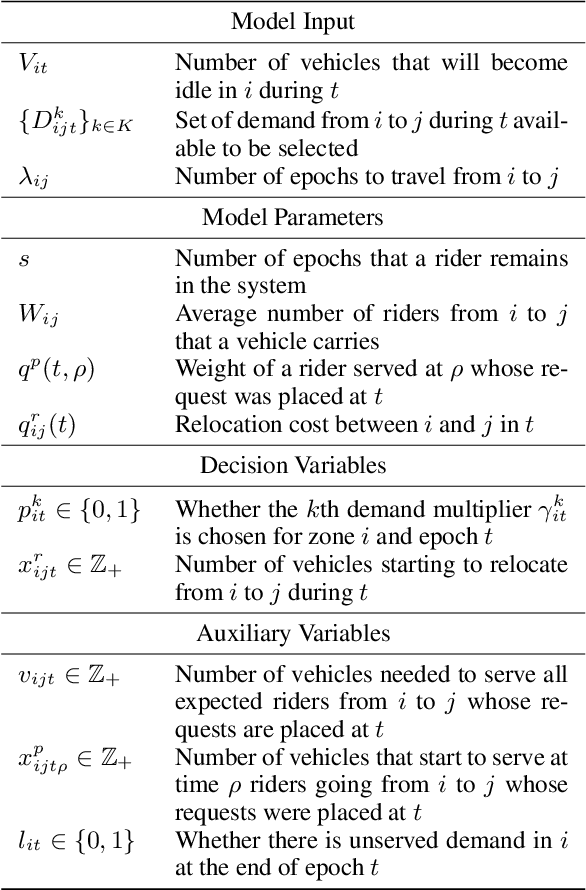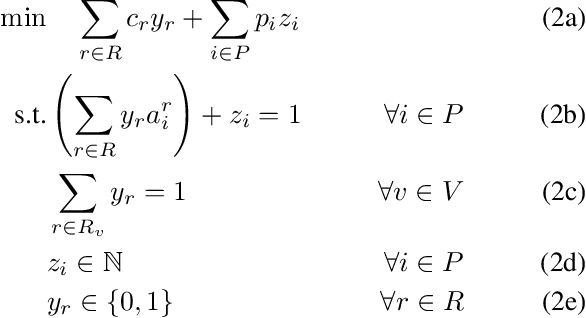Learning Model Predictive Controllers for Real-Time Ride-Hailing Vehicle Relocation and Pricing Decisions
Paper and Code
Nov 05, 2021



Large-scale ride-hailing systems often combine real-time routing at the individual request level with a macroscopic Model Predictive Control (MPC) optimization for dynamic pricing and vehicle relocation. The MPC relies on a demand forecast and optimizes over a longer time horizon to compensate for the myopic nature of the routing optimization. However, the longer horizon increases computational complexity and forces the MPC to operate at coarser spatial-temporal granularity, degrading the quality of its decisions. This paper addresses these computational challenges by learning the MPC optimization. The resulting machine-learning model then serves as the optimization proxy and predicts its optimal solutions. This makes it possible to use the MPC at higher spatial-temporal fidelity, since the optimizations can be solved and learned offline. Experimental results show that the proposed approach improves quality of service on challenging instances from the New York City dataset.
 Add to Chrome
Add to Chrome Add to Firefox
Add to Firefox Add to Edge
Add to Edge